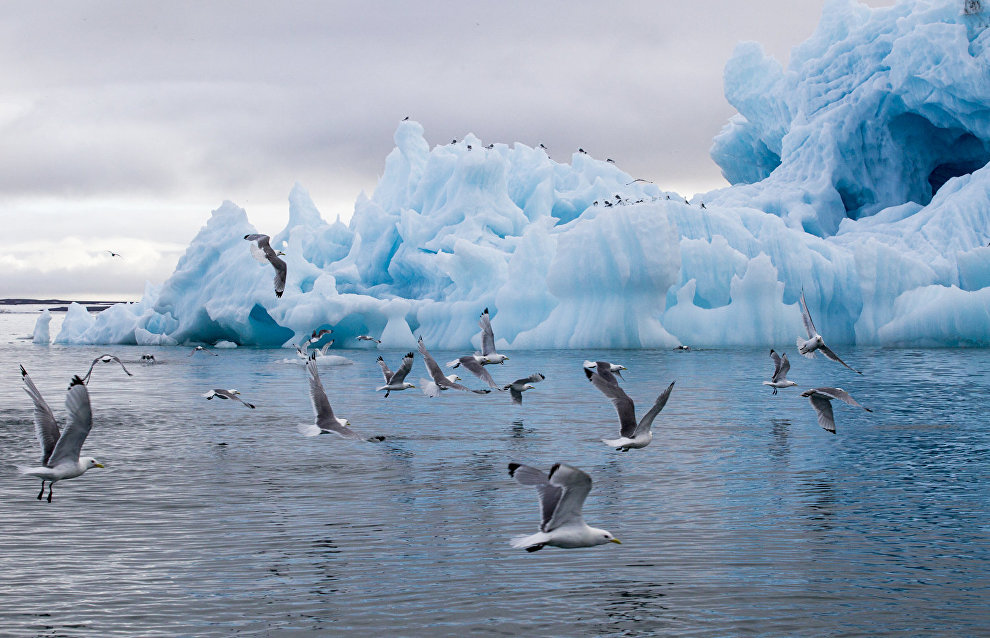The Russian Arctic: the bears haven’t eaten me yet
Despite its misleading name, Franz Josef Land is a Russian territory, part of the Arkhangelsk Region. But visiting even one of the archipelago's 192 islands isn't easy. One way to get there is to work there for the summer.
Six on Top of the World
When you stand on the porch, you look right, you look left. You look cautiously round the corner. There is no one anywhere. You only hear the sound of the waves and the noisy birds on Rubini Rock. An iceberg drifts by.
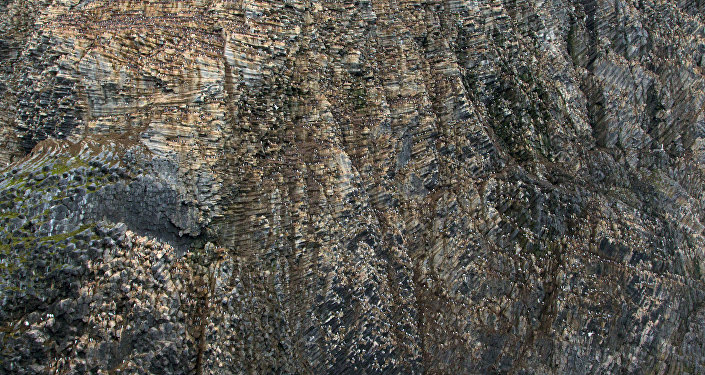
RIA Novosti. Vera Kostamo. Bird colony on Rubini Rock, Franz Josef Land, Russian Arctic National Park
Icebergs tend to remind you of someone or something. This one looks like a griffon. It looks like the turquoise sides of this block of ice, that has detached itself from a glacier, glow from the inside.
Rubini Rock, which is named after Italian opera singer Giovanni Battista Rubini, is clearly visible from the porch when there is no fog. And it really sings. But everyone hears something different: the sound of a barking dog, a noisy road or a giant laughing in the mountains. Tens of thousands of birds nest on these pencil-shaped basalt pillars.
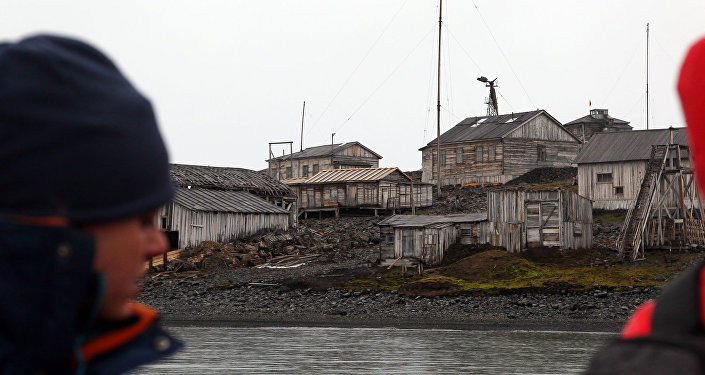
RIA Novosti. Vera Kostamo. Tikhaya Harbor
It takes only a minute to get to the steam bath; I look back again. You get used to such a rule pretty damn quickly here because the polar bears might be tempted to have you for lunch. This is no joke. Every week or so I call my mother, and the first thing I tell her is that the bears haven't eaten me yet.
Tikhaya Bay only comes alive in the summer. Every mid-June, a team from Russian Arctic National Park arrives here on the first cruise ship. They clean up the place, upgrade and repair the local infrastructure and receive tourists. Their main task is to rebuild a polar station that was abandoned here in the late 1950s. The first station buildings were put up in 1929. Winds, subzero temperatures and salt have changed the color of the building's walls to silver; and the wood doesn't really rot here.
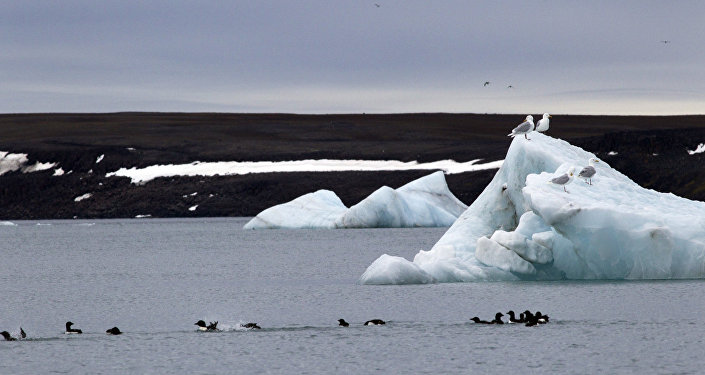
RIA Novosti. Vera Kostamo. Iceberg in Tikhaya Harbor, Franz Josef Land, Russian Arctic National Park" Iceberg in Tikhaya Harbor, Franz Josef Land, Russian Arctic National Park
In June, most of the station is covered with snow; the Bay is clogged with ice, with temperatures totaling 2 degrees to 3 degrees Celsius. Members of the team mostly land from a helicopter, work here until early September and stay until the last tourist ship has departed.
Six people, Andrei, Alexander, Maxim, Dmitry, Yulia and station chief Andrei Kunnikov, are working at Tikhaya Bay. Their daily schedule is pretty tough, with no weekends during their three-month tour of duty. The Arctic doesn't tolerate a frivolous attitude.
During the heyday of the Soviet Union's Arctic research activity, up to 50 people lived and worked at Tikhaya Bay, and 11 children were born here.
Staying alive in the wilderness
"Hey guys, let's pull down the curtains and make it dark," Yulia said, asking the boys to close the windows with improvised blinds.
The Sun shines brightly on Franz Josef Land during the polar day when you can work around the clock.
The radio transceiver starts buzzing, as station chief Andrei greets his team from a neighboring house. Yulia gets up an hour earlier and cooks breakfast for everyone else. A new day has begun.
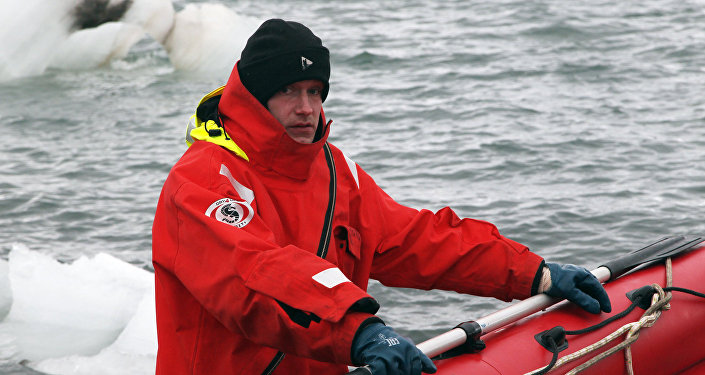
RIA Novosti. Vera Kostamo. Andrei Kunnikov
The boys wash, sit at the table but don't eat until their chief has arrived.
"All right boys, good morning and bon appetite," Andrei says.
The "boys," who are not much younger than Andrei, nevertheless show their respect for him and treat him as their boss. At breakfast, Andrei tells the boys what to do. One of them will smash old roof-high ice inside the steam-bath with a crowbar, and another will build a slipway for boats.
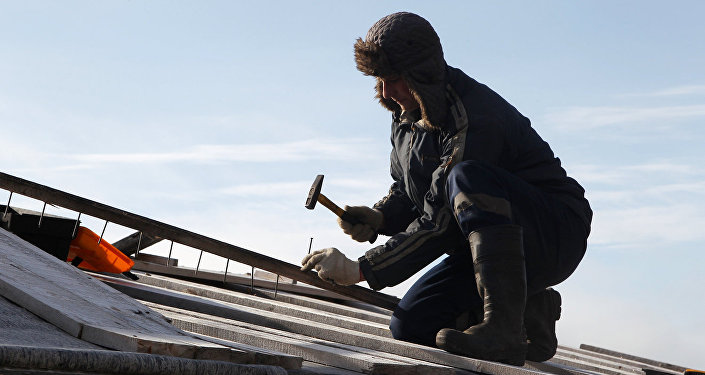
RIA Novosti. Vera Kostamo. Dmitry Pyzhik
The boys work in pairs, and never forget their firearms because polar bears show up about 20 times per season here.
In 2015, a bear managed to smash a window while the boys were sleeping. One of the inspectors woke up after being hit by broken glass. They fired a warning shot in the air and drove the bear off.
Staying alive is a priority at the station.
Alexander Molchanov, second season in the Arctic
I study at the Institute of Natural Sciences and Technologies of the Northern Arctic Federal University. Aside from my full-time job, I do meteorological observations at Tikhaya Bay, something last done in 1959. The station was relocated to Hayes Island because of the atypical climatic conditions here on Hooker Island. I would very much like to compare our data with the Soviet-era data obtained in Tikhaya Bay.
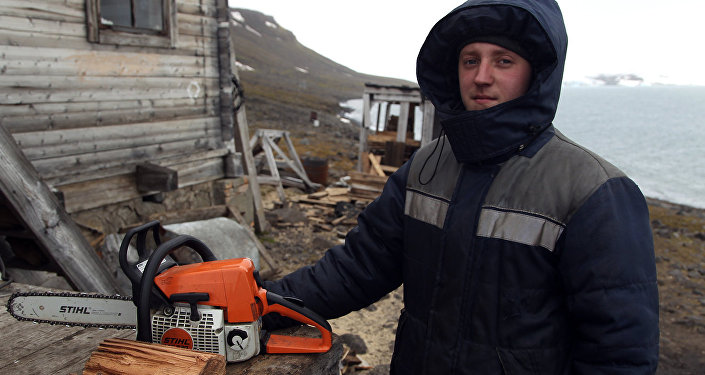
RIA Novosti. Vera Kostamo. Alexander Molchanov
You're kind of nervous here for the first two weeks, but then you get used to it. I don't get too excited when a bear shows up. I even stopped going out to look at them. It's pretty scary the last two weeks before leaving the island because you think they might eat you before you can get out.
I know that human relations are absolutely different here. Everyone here is more open, we don't argue much, and we try harder to smooth over disagreements. The further north you go, the more sincere the people.
You want to talk to everyone the first days after coming back from the Arctic. Last year, we spent 94 days at Tikhaya Bay. When you approach Murmansk on an icebreaker, you can see that it's dark on the streets and there are lots of trees everywhere, and you feel happy.
By New Year's Eve, I'll start missing this place, my work and the people here.
Maxim Iyudin, third season in the Arctic
I just work here; I don't feel proud. People with more difficult careers, like in the army, are the ones who should be proud. And we are simply doing what we can. Of course, it's interesting to see how Tikhaya Bay changes. In 2014, we barely started removing ice and bricks from a building that is now a post office.
To tell the truth, I'm not planning on a career in the Arctic because I don't want my future family to be waiting for me all the time.
I would miss the Arctic if I don't spend one year in the Arctic. But I've been missing the summer for three years now.
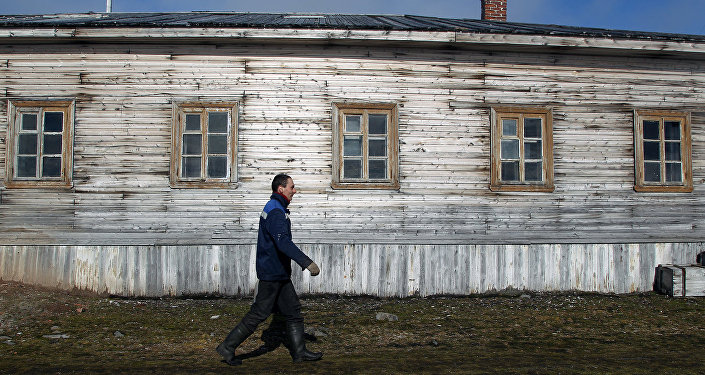
RIA Novosti. Vera Kostamo. Maxim Iyudin in Tikhaya Harbor
Andrei Krapivin, first season in the Arctic
I want to earn my MA degree at Northern Arctic Federal University, and I study the history and culture of circumpolar countries.
Our lecturers have told us about their work for the Arctic Floating University project. And I decided that people majoring in Arctic studies should visit the region at least once.
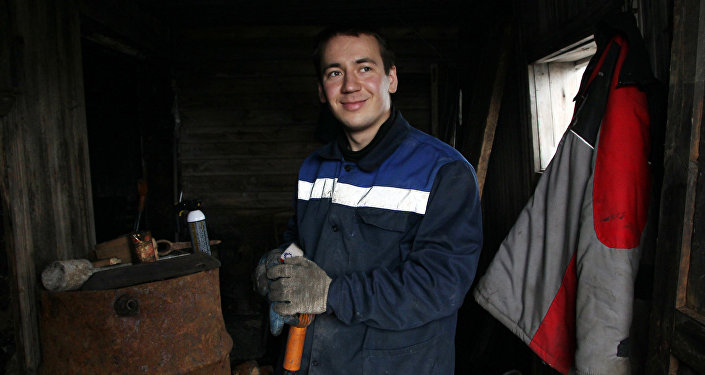
RIA Novosti. Vera Kostamo. Andrei Krapivin
They ask me about my impressions of the Arctic, but it doesn't feel like we're staying 2,000 kilometers above the Arctic Circle and 1,000 kilometers from the North Pole. When a bear shows up, you realize that you're not visiting your grandmother in her village.
Before, I had no time to think about the future, and now I have plenty of time to do this. I didn't think that I wanted to travel, to see the world, but I was able to meet interesting people here. Some have volunteered in Africa, the Antarctic, and some have lived in Alaska. I realize that these opportunities are real.
I've started to think that the Arctic means unpredictability. Everything can change in a few minutes. This is interesting and better than a routine schedule.
Andrei Kunnikov, fifth season in the Arctic
Why do I keep coming here? That's a hard question. This place has its own personality. You come here, work for a month or two and realize that you're tired. As a rule, you can go maybe 50 days. You go back to mainland Russia, and after a month, realize you are dreaming of returning to Tikhaya Bay. You dream of it just like you dream of a girl you can't forget. It's already part of me.
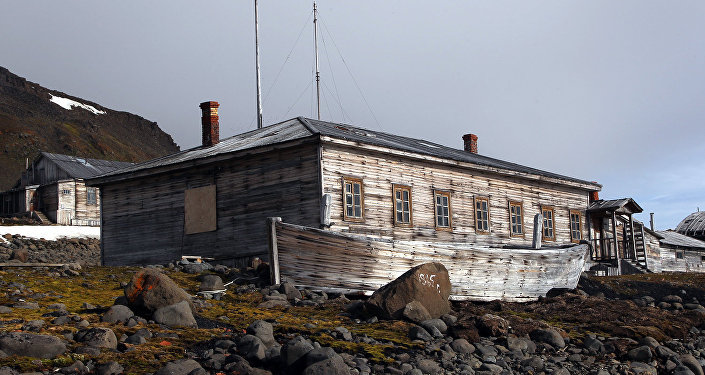
RIA Novosti. Vera Kostamo. Tikhaya Harbor, Franz Josef Land, Russian Arctic National Park
Arctic.ru will continue to publish Vera Kostamo's stories.
